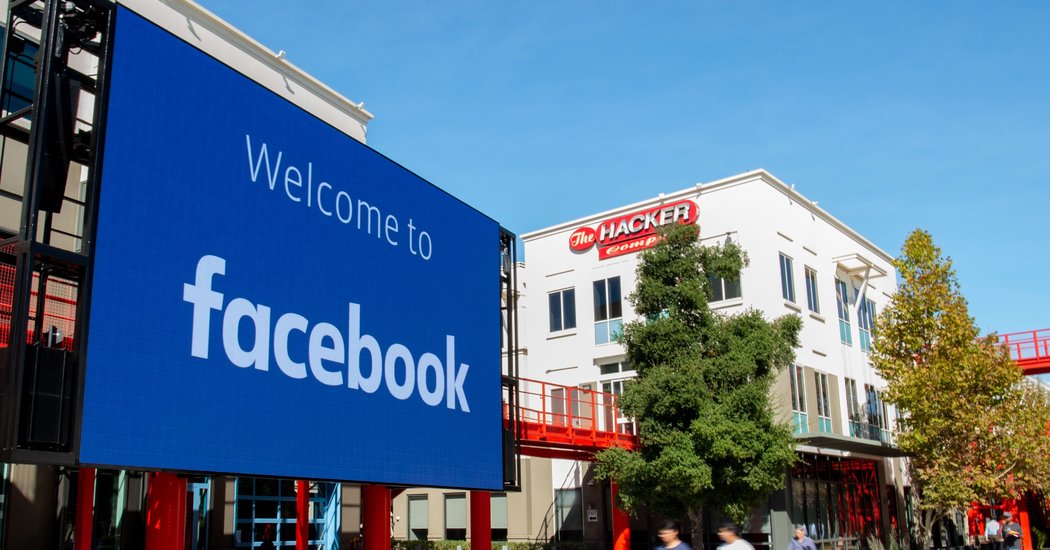SAN FRANCISCO — Facebook is exploring the creation of new products such as apps and programs for podcasts, travel, workplace services and newsletter tools, according to three people with the knowledge of the company’s plans, as it looks to expand out of its comfort zone.
The projects are nascent and may never see the light of day, said the people, who spoke on the condition of anonymity because they were not authorized to do so publicly. The work is being conducted in a new division of Facebook called the New Product Experimentation Team, or the NPE Team. Its mandate is to build the future of Facebook, whatever that may look like, the people said.
Mark Zuckerberg, Facebook’s chief executive, is focused on maintaining the social network’s position as an indispensable part of people’s digital lives. He has worked for more than 15 years to stave off irrelevance and to help Facebook avoid the fates of Myspace, Friendster and other companies that failed to innovate beyond their main offerings.
But the Silicon Valley giant also faces scrutiny for privacy deficiencies and the spread of disinformation and hate speech. Regulators are investigating its acquisitions, including the photo-sharing site Instagram and the messaging app WhatsApp, and whether Mr. Zuckerberg engaged in anticompetitive practices.
Creating new products is important for Facebook as it integrates its apps — Instagram, Messenger, WhatsApp and Facebook — and shifts away from public messaging and toward private communications. Those changes could eventually affect Facebook’s ad business, in which brands target promotions based on people’s public posts. Last year, advertising accounted for most of Facebook’s $56 billion in revenue.
A Facebook spokeswoman declined to comment on the NPE Team’s activities.
Facebook unveiled the new product initiative in July and said the NPE Team would be its own limited liability company. The company positioned the group as a way “to develop new types of experiences for people.” It has since been silent about the types of products that the team is developing, as well as its structure and makeup.
The NPE Team is led by Ime Archibong, a longtime Facebook executive who was in charge of product partnerships and is close to Mr. Zuckerberg. Under Mr. Archibong, the team has been structured into five “pods,” each with 10 to 15 people, according to two people familiar with the design. Each pod has been brainstorming different projects.
The aim is to introduce new products quickly and quietly, and to rapidly kill unsuccessful apps while gaining whatever consumer insights possible from their release. Those running the group have laid out project timelines for the next three to five years, the people said.
Some apps from the endeavor have already been released. They include Aux, a social music app, and Bump, a matchmaking app for students, which were previously reported by the technology publication The Information. The apps were available on Google Play and Apple’s App Store, and Bump was labeled “offered by the NPE Team, from Facebook.”
Some insiders said the effort might be a way for Facebook to ship new apps without the baggage of the social network’s name. The company has said the slightly separate branding will help prepare people for the possibility that the apps could change drastically or shut down with little notice.
“We expect many failures,” the company said in the NPE Team announcement post. “We also want to minimize disruption to the billions of people who use Facebook apps every day.”
Inside Facebook, executives have described the initiative as separate from its main family of apps. To find the next big product or feature, they said, those on the NPE Team need to feel open and not constrained. Revenue is not a primary concern, they said.
Early ideas include breaking into the travel industry and planning itineraries and things to do, as well as combining travel activities with the most “Instagrammable” locations in an area, one of the people said. Other concepts have focused on “neighborhood” communities, tools for creating newsletters and fact-checking “fake news,” and apps for vehicles.
Audio services also seem ripe for disruption, the people said. The wealth of information that Facebook has on users from its News Feed could easily provide a personalized listening experience, they suggested.
Not all ideas are aimed at consumers. Some have tackled issues that large companies face, like software that might improve meetings, a Facebook version of email, an automatic transcription service and a PowerPoint-style service rethought in a kind of Instagram Stories format.
Many of these concepts are already being addressed by other companies. Substack, Mailchimp and Revue provide newsletter tools, for instance. Apps like Spotify and Himalaya also offer thousands of podcasts.
Facebook’s advantage, the people said, is its enormous web of social connections and user data. That allows it to create products, features and experiences at an initially small scale. Over time, successful ones could be incorporated into Facebook’s existing apps — a way to immediately get them in front of billions of people — or perhaps spun off into stand-alone services.
Facebook executives have given members of the NPE Team a message, the people with knowledge of the division said. Don’t worry about making money, they were told. And failure is acceptable if they learn something from it. All they need is a reason that Facebook should be doing the project.
Source: Read Full Article
